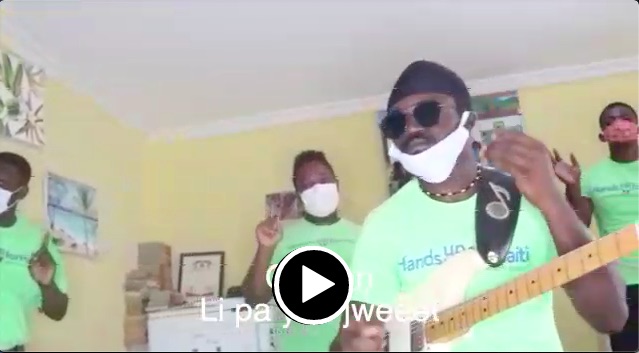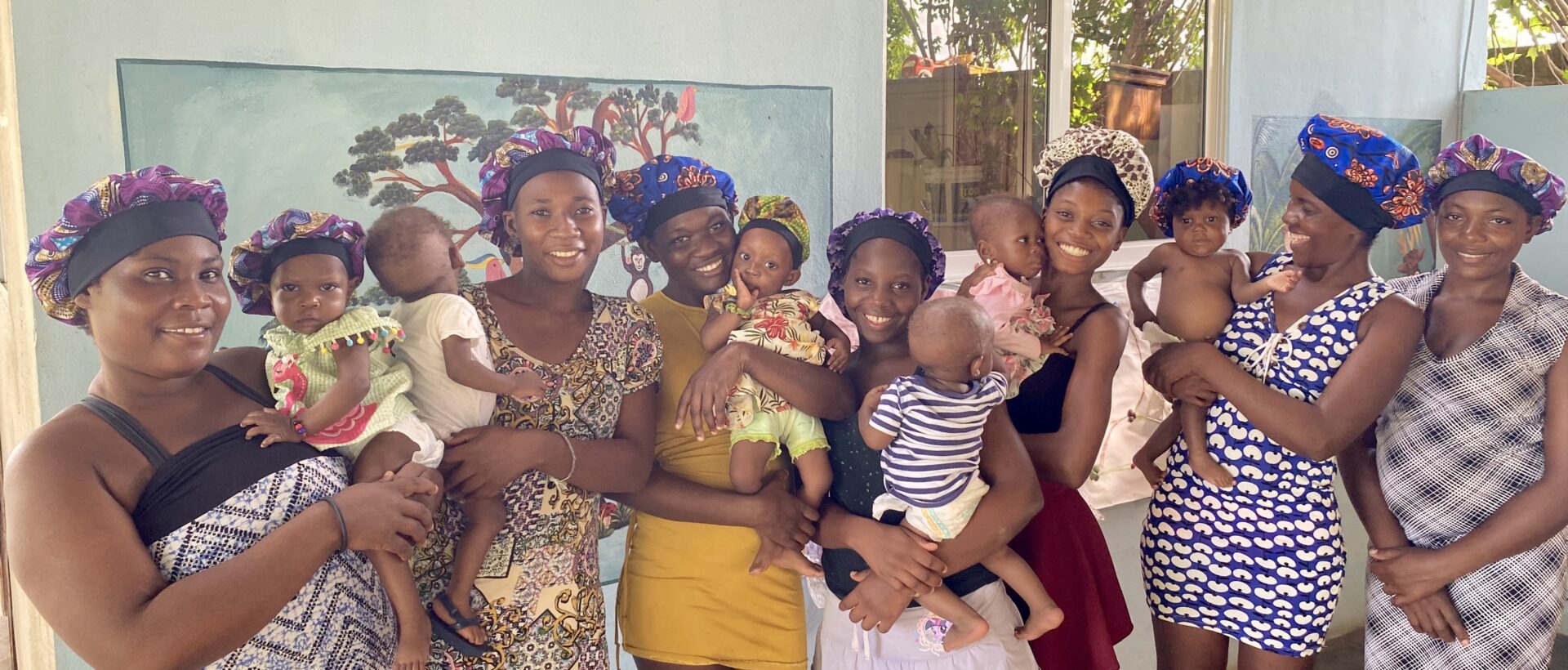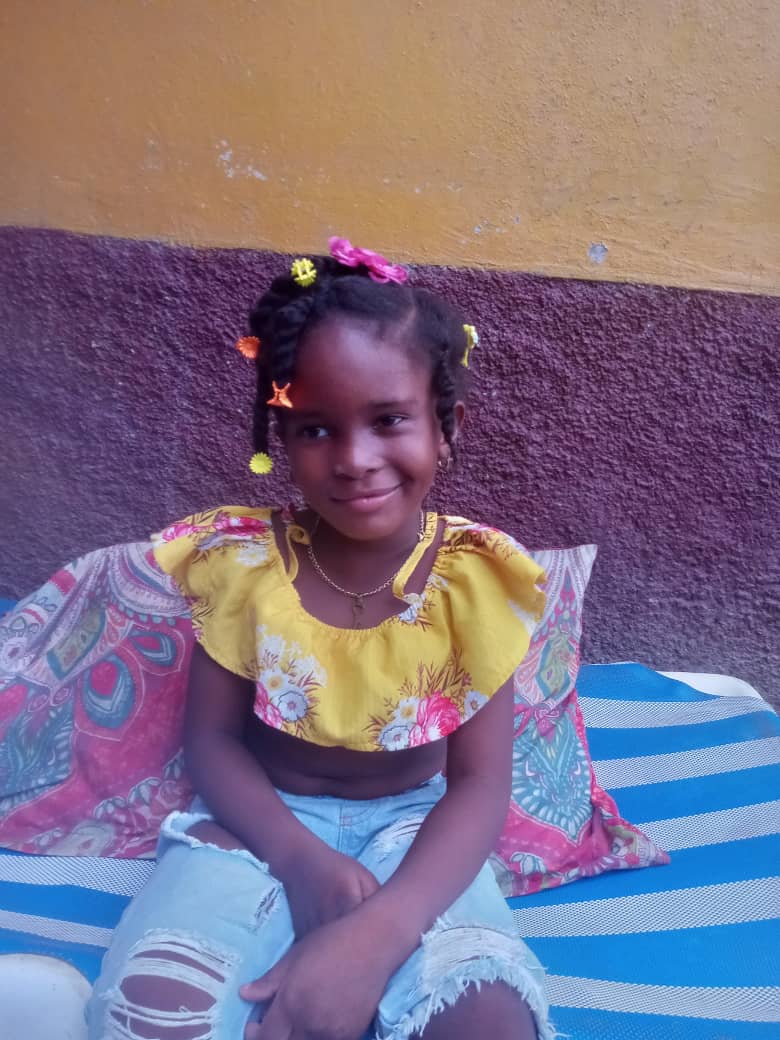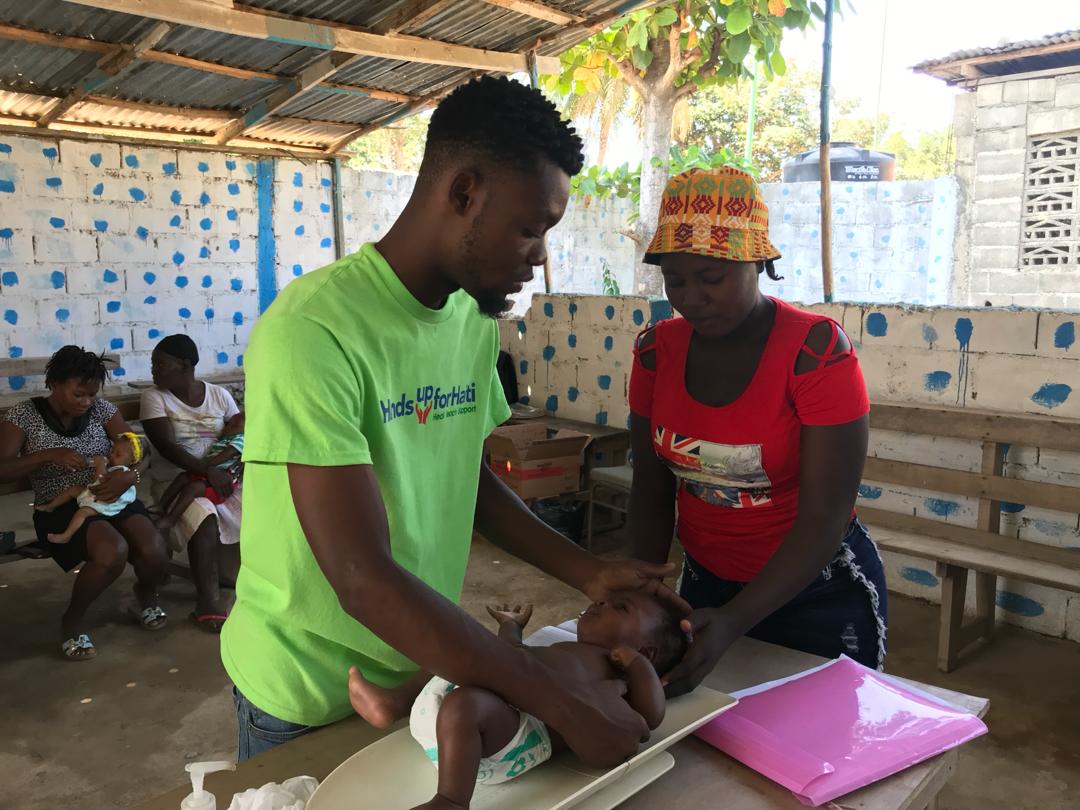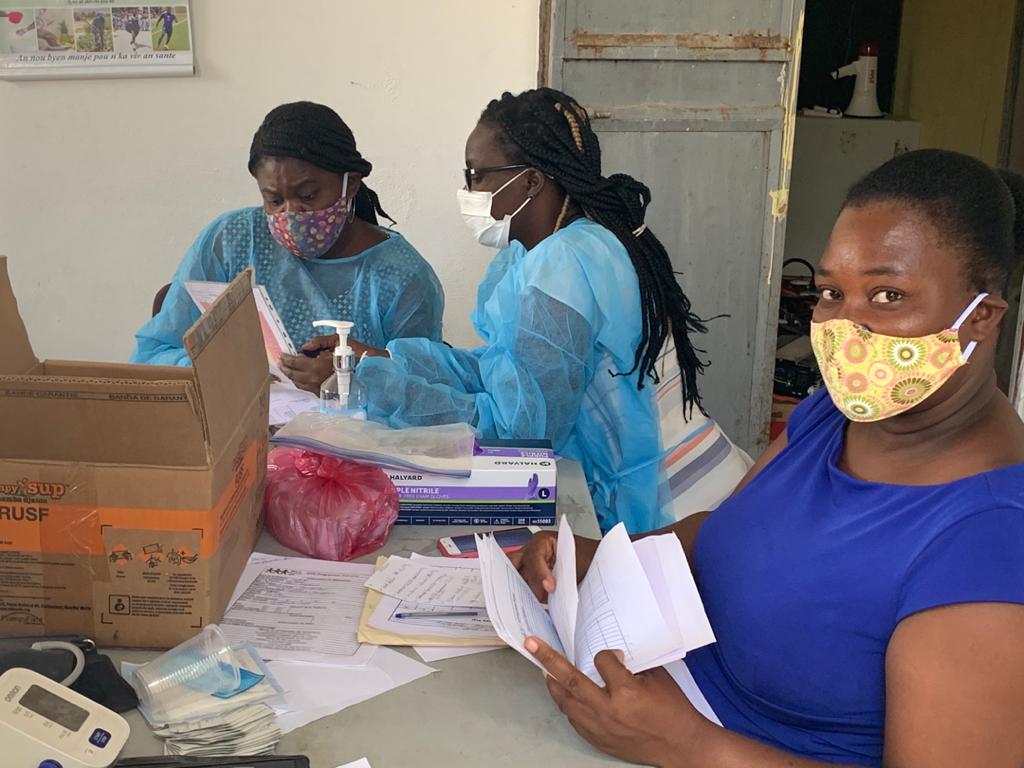
In early March, as the world was just beginning to understand the severity of the pandemic caused by COVID-19, Hands Up for Haiti (HUFH) brought a small team to Haiti, led by co-founder Dr. Jill Ratner, on what was to be our final mission for the foreseeable future. This was a planned education and training mission that was rapidly adjusted to assist our in-country staff with preparations for the inevitable arrival of COVID-19 on Haiti’s shores. The team brought materials about coronavirus, and reviewed CDC and WHO guidelines with our Haitian medical staff.
That visit set the stage for how our in-country leadership, partnering with our team in the United States and Canada, would not only respond to the impending pandemic in Haiti, but also to the collateral damage of increasing food insecurity and malnutrition, and lack of access to hospitals, clinics and medical care.
As of this past week, Haiti has over 3300 cases of documented COVID-19 and has had 50 deaths. But due to limited testing, the death toll may be much higher as we are learning about an increase in unexplained and sudden deaths in the communities that we serve in the North.
HUFH's team of medical and lay volunteers in the US and Canada is working together with our Haitian team and our partners to intensify our efforts to provide life-saving care. These efforts are more important than ever, given the ability of COVID to overwhelm Haiti’s already extremely limited medical resources. As our vision statement attests, having a “Haitian run, Haitian led” organization allows HUFH to continue our vital work despite limitations on travel, fosters a motivational sense of autonomy and creative problem solving in our Haitian staff, and helps build a better future.
This is an update about how our organization has responded:
Getting Ahead of the Virus
Within two weeks of our visiting team’s departure, Haiti reported its first cases of COVID-19 and the country was essentially placed on lock down, with flights cancelled and borders closed. As a relatively small organization, networking was crucial. To get ahead of the crisis, Dr. Rose-Laure Jeanty, our Medical Director in Haiti, began meeting with the Ministry of Health, while our in country Executive Director, Thermitus Jean, met with the leadership of other local organizations and NGOs, coordinated by the Haiti Health Network (HHN). Our Haitian leadership team also met with the directors of the local hospitals to discuss strategies for dealing with sick patients and how to obtain personal protective equipment for our staff.
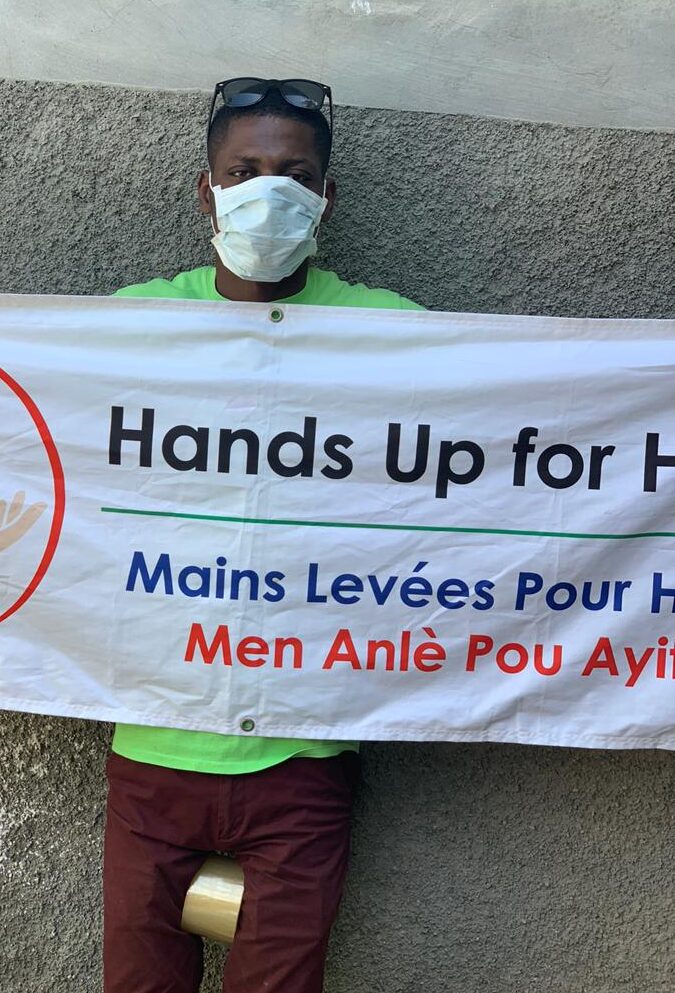
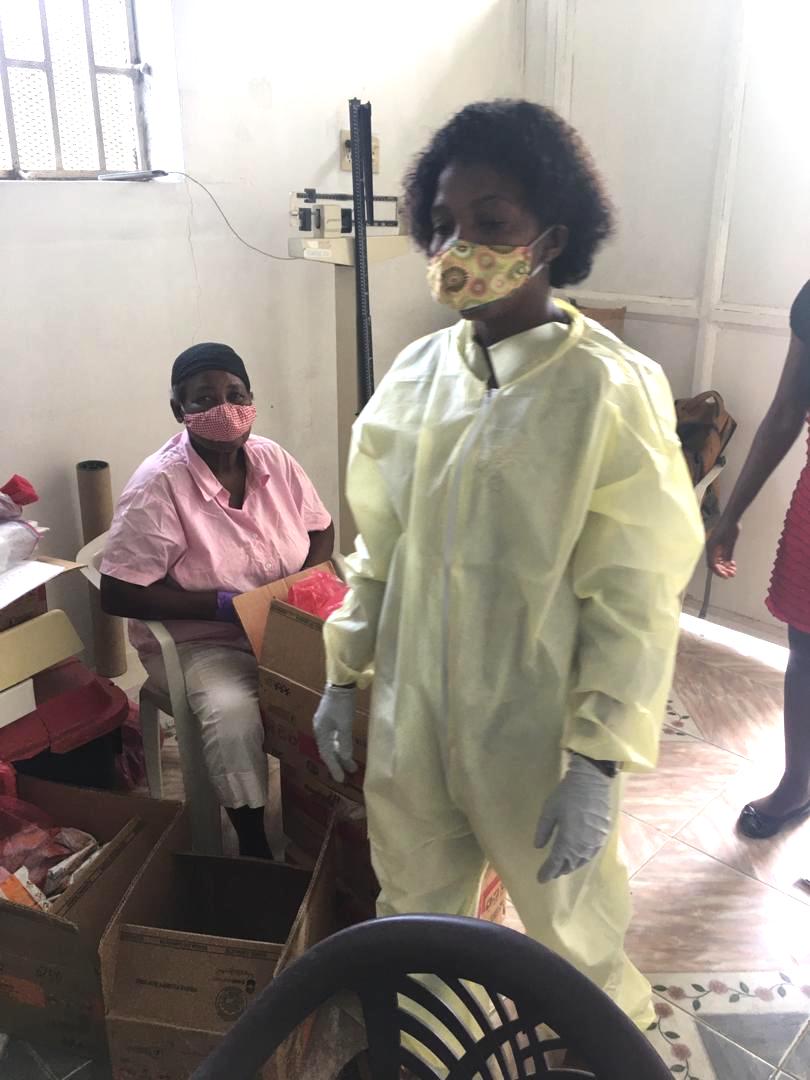
Information Spread
People in Haiti are frightened, and a great deal of misinformation is being circulated. To help combat this problem, Dr. Jeanty wrote a simple educational message to be used by our community health workers (TSKs) to educate people in the four communities and multiple villages that we serve. The message focuses on how to stay safe and includes a basic description of the virus, how it spreads, and the importance of social distancing and washing hands. Determined to spread the word, our amazing team on the ground partnered with a local musician, Antoine Kenel, to produce a music video informing the public about dealing with COVID. The video has gone viral on social media in Haiti and can be seen by clicking here.
Keeping Our Critical Lifesaving Programs Running
A major goal of ours is to keep our critical programs running in spite of the pandemic. We quickly created a new set of protocols that incorporated social distancing to protect both our staff and community members while we continue to deliver essential care, focusing on our Malnutrition, Prenatal and Hypertension programs, all of which continue to operate and even grow to meet increased demand. Prenatal vitamins, hypertension medications, and nutritional RUTF for our childhood malnutrition program are dispensed in larger quantities, but less frequently. Community health workers still check in with families, going door to door, and reinforce the wearing of masks, social distancing and hand washing.
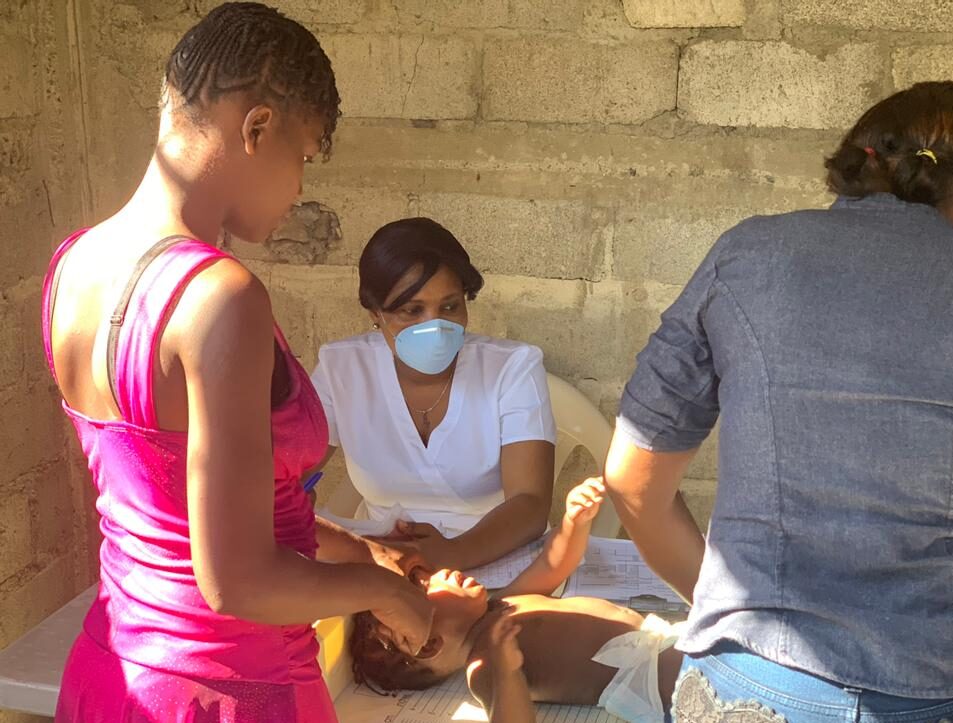
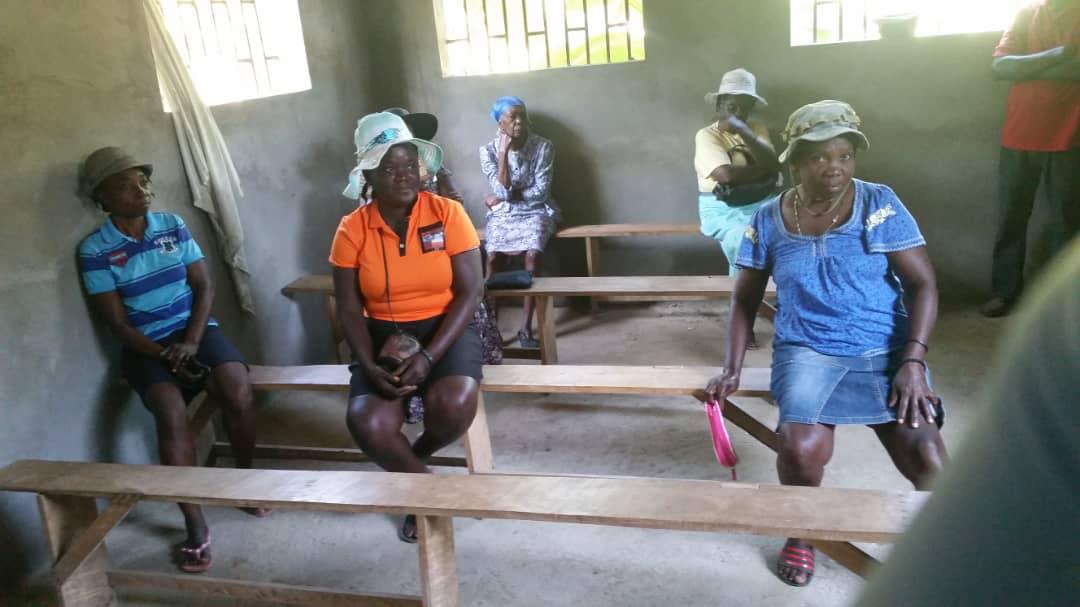
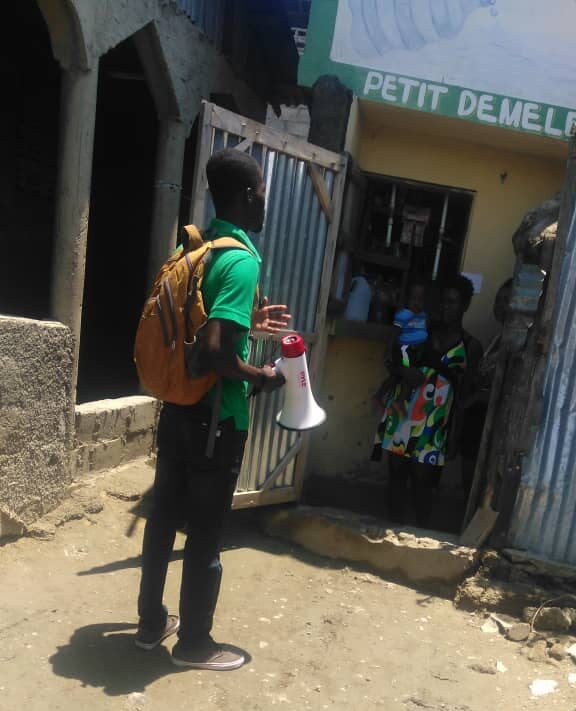
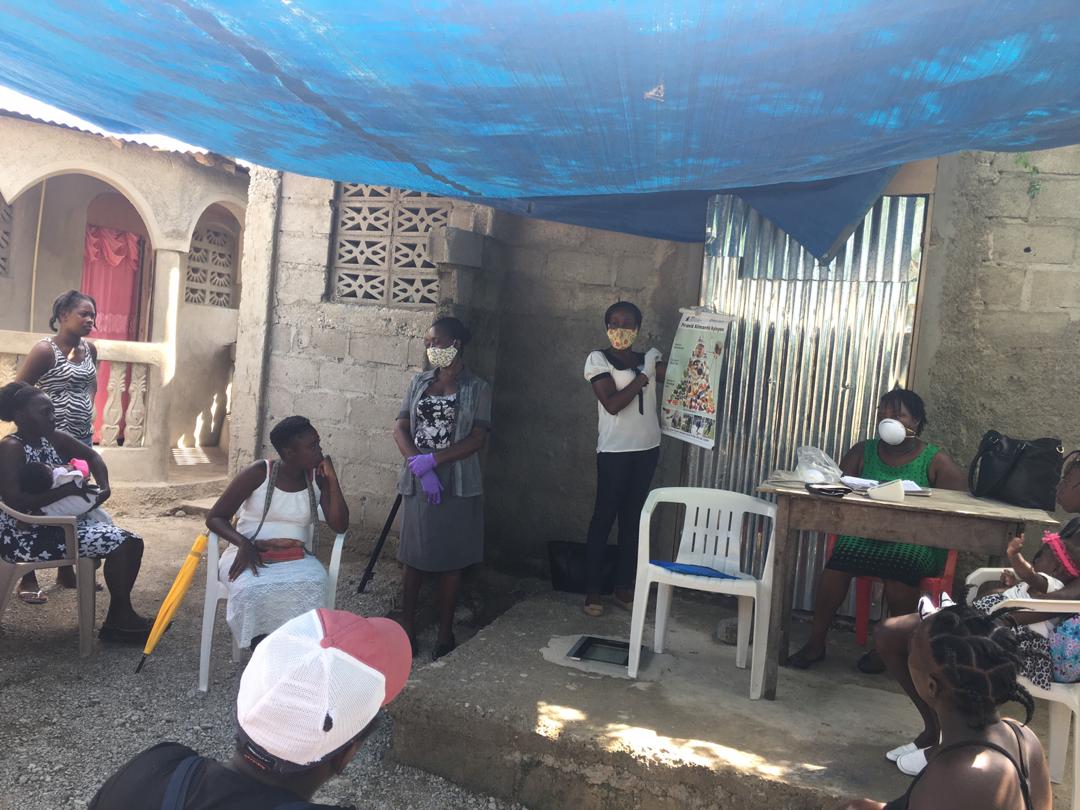
Making Hand Hygiene Possible
Our Clean Water and Wells Program also continued with greater emphasis placed on hygiene. In the communities that we serve, running water and sanitation infrastructure is virtually nonexistent. To work within this reality, our staff constructed “tippy-taps” - hands-free hand washing stations - close to our water wells. Securing plastic gallon jugs and soap, they have installed more than 50 of these in a short time and continue to build more.
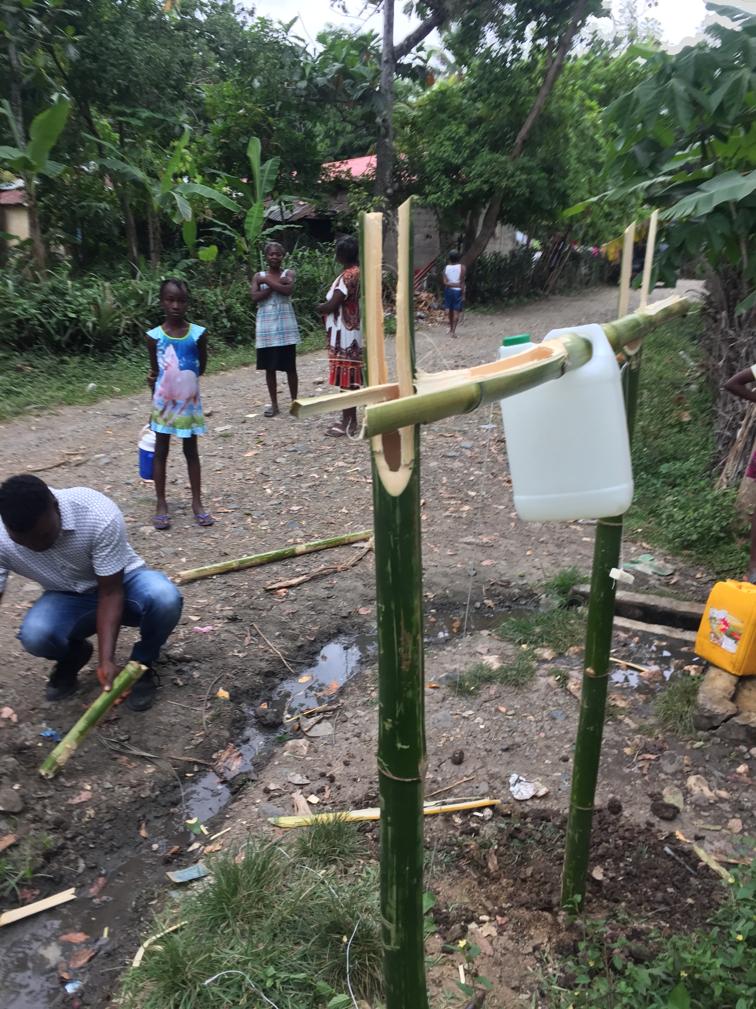
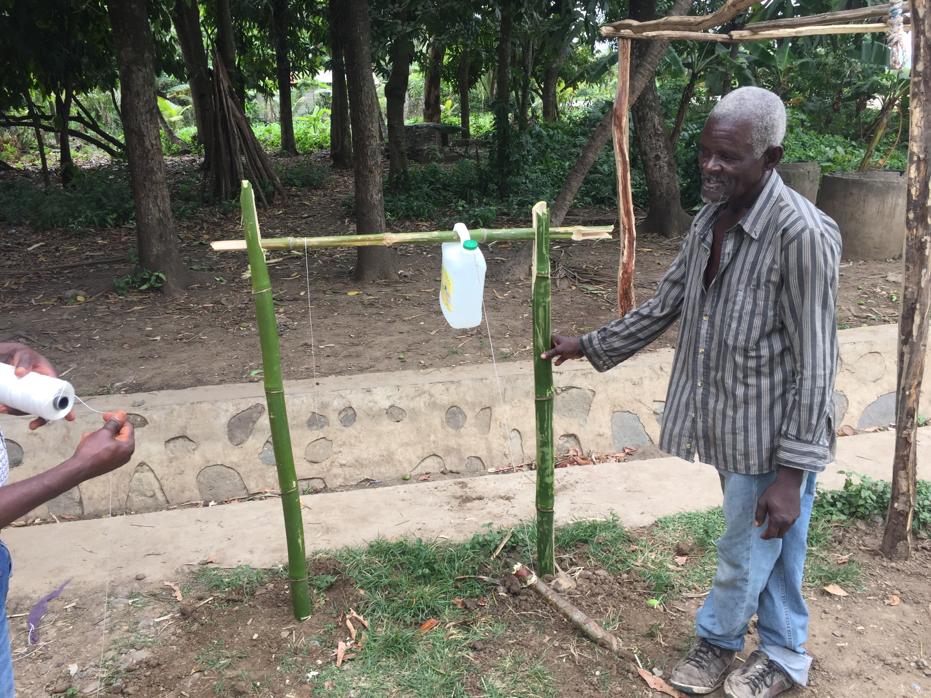
To read more about WHAT HUFH IS DOING IN THE AGE OF THE CORONAVIRUS, CLICK HERE.
To watch more about HUFH's programs, click here.



